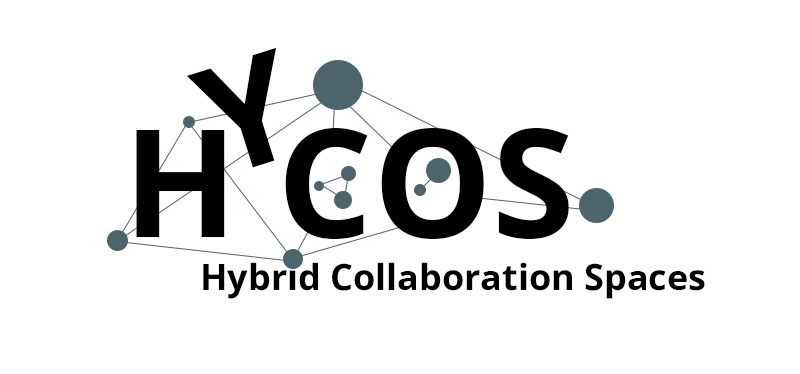Remote and hybrid forms of collaboration have become widespread at the latest since the onset of the COVID-19 crisis. Even before the pandemic, such work settings were becoming increasingly important and have found their way into a large number of different domains and fields of activity in recent years. In hybrid collaboration, unlike in fully distributed („remote“) settings, only some of the people involved are usually not on site together. However, hybrid collaboration does not only describe the partial local distribution of the participants. It also includes the use of a wide variety of tools, such as the use of devices and software for video conferencing and other types of communication or data and information exchange, as well as the formation and interaction of subgroups within a team.
Although hybrid forms of collaboration have enormous potential for increasing efficiency in many areas of work, for example by eliminating longer travel times while necessary activities can continue to be performed on site, they also entail a variety of new challenges. In particular, the equal involvement of external parties in the interaction of those on site can often only be guaranteed to a limited extent.
During the COVID-19 pandemic, extensive experience with fully distributed collaboration was gained in many areas (for example, during a legally mandated lockdown), and hardware equipment was acquired that fundamentally enables remote communication among collaborating individuals. Many companies as well as educational institutions now want to exploit the positive experience gained during this period for the time after the acute pandemic and combine it with the advantages of on-site collaboration. This will open up numerous new areas of application for hybrid collaboration in the future.
The HYCOS project aims at exploring the „spaces“ in which hybrid collaboration occurs. A hybrid collaboration space encompasses the entire context of a hybrid collaboration with all associated physical and virtual elements. In the context of the HYCOS project, 1) a scientific definition for the term Hybrid Collaboration Space is established, 2) requirements for such a space are systematically collected through empirical studies, 3) a modular prototype of a hybrid collaboration space is implemented and 4) systematically evaluated. From the findings, 5) generalizable design and implementation guidelines for hybrid collaboration spaces are derived.
The HYCOS project is funded by the Austrian Science fund FWF, conducted at the University of Applied Sciences Upper Austria, School of Informatics, Communications and Media in Hagenberg and led by Dr. Mirjam Augstein, Professor for Personalized and Collaborative Systems.
HYCOS is embedded in the Research Group PEEC (Personalized Environments and Collaborative Systems).


